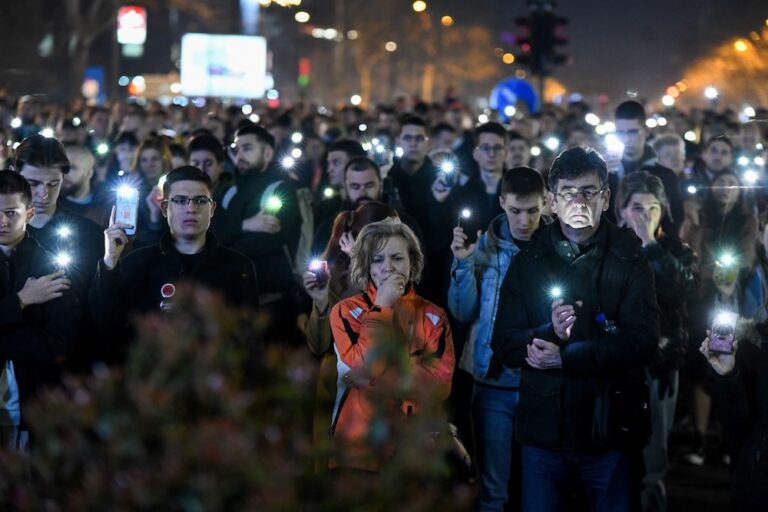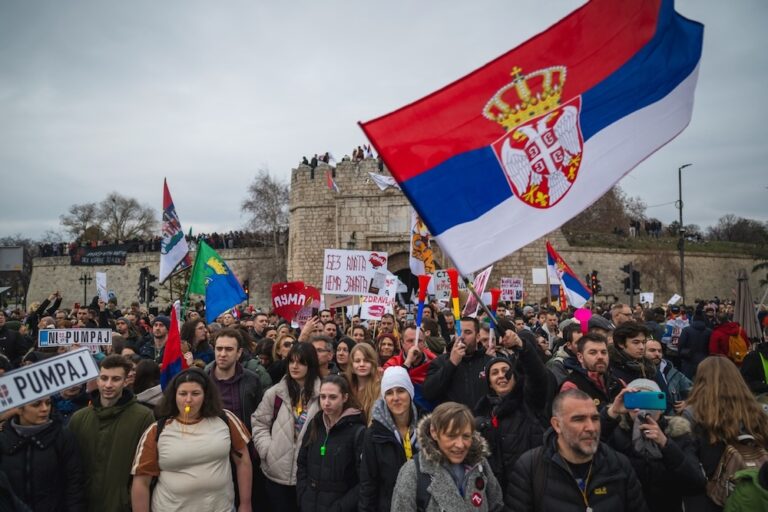(RSF/IFEX) – In a letter sent to Kofi Annan, Secretary General of the United Nations, Jan Kubis, Secretary General for the Organization for Security and Co-operation in Europe, Romano Prodi, President of the European Commission, and to the ministers of foreign affairs for France, the United Kingdom, Germany and Italy, RSF emphasized the need for […]
(RSF/IFEX) – In a letter sent to Kofi Annan, Secretary General of the United
Nations, Jan Kubis, Secretary General for the Organization for Security and
Co-operation in Europe, Romano Prodi, President of the European Commission,
and to the ministers of foreign affairs for France, the United Kingdom,
Germany and Italy, RSF emphasized the need for free and independent
information in the province of Kosovo.
“At a time when, under the aegis of the United Nations, international
institutions such as the Organization for Security and Co-operation in
Europe and the European Union are undertaking the running of Kosovo, it
appears essential to us to bring your attention to the necessary
re-establishment of free information and an independent media in the
province,” stated RSF. Robert Menard, RSF’s secretary general, warned the
new administration in Kosovo “to not allow – or support – the seizure by
this or that political or military group of the right to information. We
might fear that certain Albanian military-political actors would be tempted
at this time by hegemonic ambitions in the area of news and information”, he
added. “Given that the intervention by the international community in the
province was done in the name of democracy and human rights, freedom of
expression, free circulation of information and independence of journalists
must now be ensured and re-established for all and respected by all,” RSF
concluded.
RSF recalls that under the regime in Belgrade, Albanian-language media in
Kosovo were the target of Serb retaliation: closures, exorbitant fines,
printing and distribution problems. Their journalists were often victims of
violence and arbitrary police action. Fearful for their lives, many of them
preferred to go into exile during NATO’s intervention. Since 1989, the
province has not had any Albanian-language audio-visual media. In May 1998,
the only independent radio station, which broadcast in Serbian and Albanian,
was closed by authorities.
RSF also points to the Bosnian example where the return of peace, even under
the aegis of western democracies, did not bring with it the return of all
rights and freedoms. The creation of a media commission, supervised by the
top-ranking civil servant in Bosnia-Herzegovina, did not prevent all press
entities in the country from being pressured by local authorities, RSF
added.


